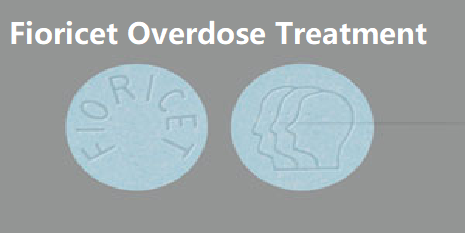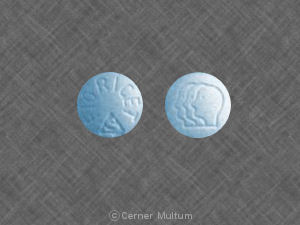Following an acute overdosage of butalbital, acetaminophen, and caffeine, toxicity may result from the barbiturate or the acetaminophen. Toxicity due to caffeine is less likely, due to the relatively small amounts in this formulation.

Signs of Fioricet Overdose
Toxicity from barbiturate poisoning includes drowsiness, confusion, and coma; respiratory depression; hypotension; and hypovolemic shock.
In acetaminophen overdosage: dose-dependent, potentially fatal hepatic necrosis is the most serious adverse effect. Renal tubular necrosis, hypoglycemic coma, and coagulation defects may also occur. Early symptoms following a potentially hepatotoxic overdose may include: nausea, vomiting, diaphoresis, and general malaise. Clinical and laboratory evidence of hepatic toxicity may not be apparent until 48 to 72 hours post-ingestion.
Acute caffeine poisoning may cause insomnia, restlessness, tremor, and delirium, tachycardia and extrasystoles.
What are the Symptoms of Fioricet Overdose ?
Fioricet contains three active ingredients: acetaminophen, butalbital, and caffeine. Overdose of Fioricet can lead to serious and potentially life-threatening complications, particularly due to the presence of acetaminophen, which can cause liver damage in high doses. Here are the symptoms of a Fioricet overdose:
- Acetaminophen toxicity: Acetaminophen overdose is the most concerning aspect of Fioricet overdose. Symptoms of acetaminophen toxicity may not be immediately apparent but can develop within hours to days after ingestion. These symptoms may include:
- Nausea and vomiting
- Loss of appetite
- Abdominal pain or discomfort, particularly in the upper right side
- Yellowing of the skin or eyes (jaundice)
- Dark urine
- Clay-colored stools
- Confusion or altered mental status
- Coma
Acetaminophen overdose can lead to liver failure, which can be fatal if not promptly treated. Liver damage may progress over several days, and early medical intervention is crucial to prevent severe complications.
- Butalbital toxicity: Butalbital is a barbiturate found in Fioricet, and overdose can lead to central nervous system depression, respiratory depression, and other serious complications. Symptoms of butalbital overdose may include:
- Drowsiness
- Confusion
- Slurred speech
- Impaired coordination
- Respiratory depression (shallow breathing)
- Hypotension (low blood pressure)
- Coma
- Caffeine toxicity: While less common, overdose of caffeine can lead to symptoms such as:
- Restlessness
- Anxiety
- Rapid heartbeat (tachycardia)
- Tremors
- Seizures (in severe cases)
If you suspect a Fioricet overdose or experience symptoms of overdose, seek immediate medical attention or contact your local poison control center. Prompt medical treatment is essential to prevent serious complications and improve outcomes.
Treatment of Fioricet Overdose
A single or multiple drug overdose with this combination product is a potentially lethal polydrug overdose, and consultation with a regional poison control center is recommended. Immediate treatment includes support of cardiorespiratory function and measures to reduce drug absorption.
Oxygen, intravenous fluids, vasopressors, and other supportive measures should be employed as indicated. Assisted or controlled ventilation should also be considered.
Gastric decontamination with activated charcoal should be administered just prior to N-acetylcysteine (NAC) to decrease systemic absorption if acetaminophen ingestion is known or suspected to have occurred within a few hours of presentation. Serum acetaminophen levels should be obtained immediately if the patient presents 4 hours or more after ingestion to assess potential risk of hepatotoxicity; acetaminophen levels drawn less than 4 hours post-ingestion may be misleading. To obtain the best possible outcome, NAC should be administered as soon as possible where impending or evolving liver injury is suspected.
Intravenous NAC may be administered when circumstances preclude oral administration.
Vigorous supportive therapy is required in severe intoxication. Procedures to limit the continuing absorption of the drug must be readily performed since the hepatic injury is dose dependent and occurs early in the course of intoxication.
